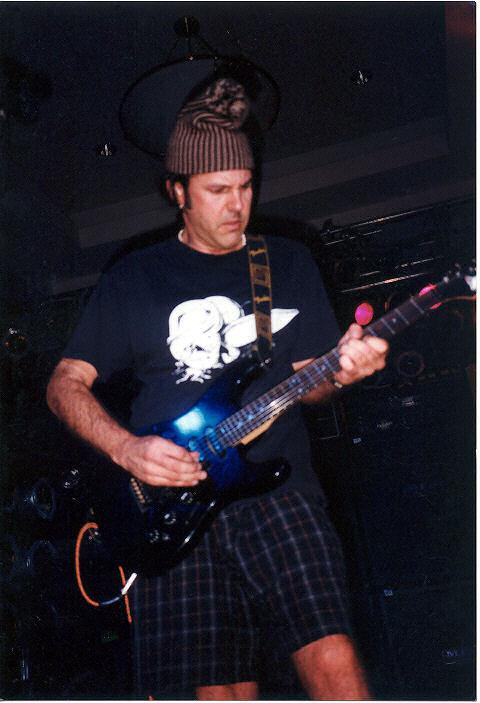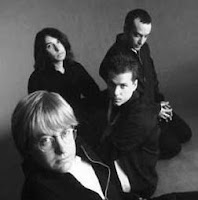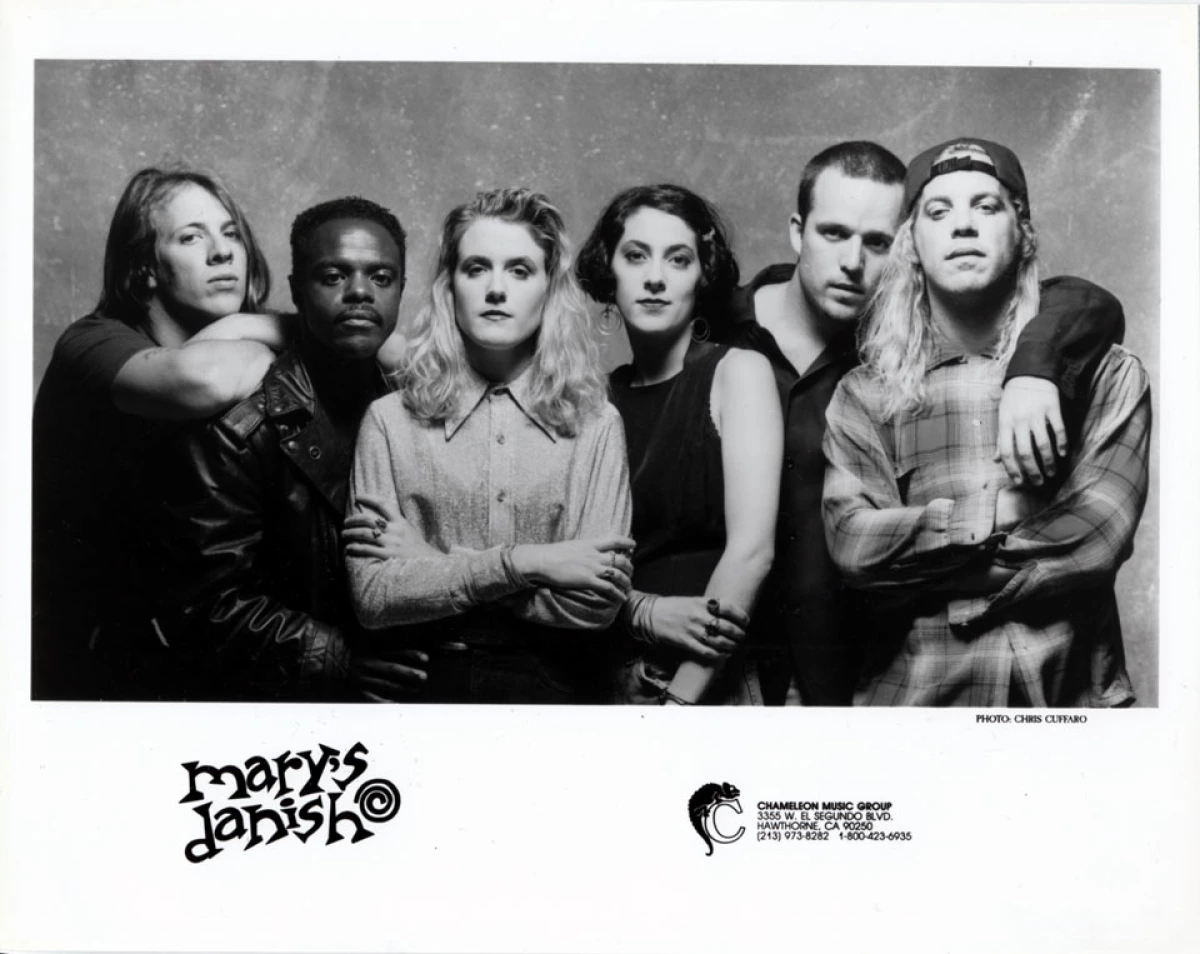Here and Now: Dropping Science with Matt Goves of the Ernies
Discography:
The Ernies (BOB Records, 1995)
Dropping Science (BOB Records, 1997)
Meson Ray (Mojo Records, 1999)
Back
in 2010, I wrote a book about various bands in the state of Virginia. It was
called Keeping It Tight in the Old Dominion: A History of Virginia Rock Music, pretty self-explanatory. It covered rock and roll in VA from the fifties until
the beginning of the 2010’s. In the decade since, I decided to try and catch up
with as many musicians as wanted to talk about their careers. Drummer Matt
Goves of the Richmond based ska/punk/everything else band The Ernies sat down
and talked about their career and their hopeful legacy.
Pete Crigler: What got you into music?
Matt Goves: I went to a Civil War reenactment when I was 7. We got to walk around the camps before it started and I was intrigued by the drummer boy. We got home and my grandmother turned a cardboard box, some string and a pair of wooden spoons into my own personal drum. I started playing in school band in 4th grade and it’s been on since then.
Pete: How did the Ernies start and what was the scene in Richmond like at the time?
Matt: I met Will (Hummel, guitarist/vocalist) when I auditioned for a cover band called Force of Habit. He was originally playing drums but wanted to switch to guitar. It only took a couple gigs for he and I to realize that we both shared a different vision of what we should/could be doing. A couple members left and we added a 4 piece horn section and changed the name to something a little more original. Boom, The Ernies were born. The scene in Richmond at the time was amazing. So many great bands and great venues. Everyone seemed to support each other. Friday Cheers was at 6th Street outside the Coliseum and was packed every week. Local/regional bands were killing it. This is maybe ‘93/‘94? DMB was still regional, Agents of Good Roots, Fighting Gravity, Everything...all killing it. And people came out to support them.
Pete: How did the band develop its sound?
Matt: So we knew we wanted to play original stuff and we wanted to work. So it was important to play stuff people enjoyed. We all really enjoyed ska and reggae and we had a super tight horn section so it all fit to gather. We started writing our own songs that had a pretty hard ska tilt to then and we fluffed the set lost with some classic covers. Gradually the originals became more prominent and the sound developed. Of course things change and the music we were listening to on the road began to find its way into our sound. We all enjoyed different stuff and it became a mish/mash of hip-hop and heavier guitar driven stuff. At some point we (or was it Will??) Anyhow....someone in the van one day said we should call it “Jive”. Jive being a mix of all these crazy styles, and we wrote a song around that idea.
Pete: What was it like dealing with all of the personnel changes?
Matt: Was it hard? I mean, it’s def hard when someone who you’ve literally travelled from coast to coast with someone who’s helped keep you awake driving through Kansas at 3 am and that you’ve shared so many great moments on and off stage decides to leave the group for whatever reason. But, life goes on. Yea, it was tough not having Stefan (trombone) with us after he left. Each member had an impact and a unique personality that makes the group what it is. I think the toughest for me personally was when Mike Hughes (bassist) left. We were roommates and he had started with us while he was still in high school! The band came and went but we’re all still really close.
Pete: What was it like recording Dropping Science?
Matt: So we got hooked up with Mark Miley (drummer in Armwood. Don’t know them? You should) and Glass Hand Studios. This place should have a historical marker. It was a Mecca for bands in this town. So much amazing music came outta there. Mark is amazing. So much talent behind the drums and the console. He really helped us find our way and taught us how to make a record. We did the first one with him at Glass Hand then Dropping Science with him at Montana Studios. The process was similar but we had more flexibility via the bigger studio and more options.
Pete: How did the band sign with Mojo and do you feel it was a good move?
Matt: We had planned a tour out west to get us to Los Angeles to do a label showcase. We hit a buncha ski towns in Colorado on the way out. I wanna say it was a Tuesday night. We’d invited every label we could find to come, and a few actually showed up. There were maybe four or five bands on the bill with us in the middle somewhere. The Mojo A&R rep was there and I guess liked what he saw because we had an offer by the time we got back to the east coast. Was it a good move for us? I think so. Mojo had a concept of how each of their bands would fit into their line up and it was insane to be included with bands like Reel Big Fish and Goldfinger. I guess we were intended to fill out the more “edgier” side of their roster. Through Mojo we got hooked up with Howard Benson who was a pretty big name then, now he’s off the frickin charts. Before becoming a producer Howard worked in I wanna say aeronautical engineering. He def knows his stuff and back then he was riding the early waves of digital recording. He flew out to a gig we were doing in the Midwest while on tour and agreed to work with us. Howard is all about making hit songs. He’d sit in our pre-production rehearsals with a map of each song and a stop watch. If we weren’t into the chord within so many seconds or if the vocals hadn’t happened then we’d have to cut stuff. He knew how to make ideas work and when you’re trying to make a living at this that what it takes.
Pete: What was it like recording Meson Ray?
Matt: We recorded Meson Ray in a house in the Hollywood hills that Michael Jackson owned. It was surreal. We had to sign a contract that said we’d agree to vacate the house should Michael want to stop by. Pictures of him all over. Crazy. It was def a Wayne’s World “we’re not worthy” sorta vibe. Howard was also working with P.O.D on their first record at that time as well as Less Than Jake. And our engineer, Bobby was super tight with a lot of the R&B artists out there so you could imagine the stories?!? Just a group of college kids from RVA trying to tread water in the presence of all this greatness. It was awesome.
Pete: What do you think of the band’s success or lack thereof?
Matt: I mean, it’ll always be a “woulda, shoulda, coulda” thing. I’m hindsight I think we did pretty well for some kids who had never done it before. We got to be on the first Tony Hawk Pro Skater soundtrack that’s about to be rereleased. I heard rumors that Here and Now made the cut. Would we do things differently? Absolutely but it is what it is but I’d also do it all over again.
Pete: Were there attempts to make a forth album?
Matt: So we had tracked some demo stuff for a second Mojo release. It got bounced back and forth but by this time the label was frustrated with various parts of the relationship. Some we had control over, much that we didn’t. Regardless Mojo dropped us and we tried to pick up the pieces. It’s tough when you’ve literally poured everything you’ve got as a band and personally into a project them the bottom drops out. We kept going for a while but ultimately the business side of things became too much. It has a way of sucking every ounce of creativity and motivation out of you.
Pete: When did the band decide to stop and what is everyone up to?
Matt: We never really ever said “that’s it! It’s over” we just kinda stopped playing. We’re all still very close friends and try to stay in touch as much as possible. I went back to teaching music which is what I was doing before we got signed. Everyone in the band was always very involved in music. Most of us were either music majors at VCU or had been in band though high school. I still teach at a couple different schools in Richmond as well as in my private studio. I play in a variety of different groups now from classical to hip hop. I also compete and perform with a Scottish pipe band. Ironically enough so does Will. He got involved with a band in Florida a couple years ago and has been killing it on snare drum. Dude never ceases to amaze me. He’s pursuing a career in the medical field down there. Hayes is doing really well out in Dallas working in a studio. Mike has been busy playing with The Jangling Reinhearts, Stefan helped start No BS Brass as well as being a powerhouse brass ambassador for the area. He teaches a lot as well. I don’t think anyone knows where our DJ Chris Bondi is these days. If you do, tell him to hit us up hahaha.
Pete: What do you hope your legacy is?
Matt: Do we have a legacy? I dunno, seems like things have changed a lot as far as how the industry as a whole works. We were lucky to come to through the system in a time were live music was a thing. Local music was appreciated and cultivated. It’s happening today....well, not so much in the age of COVID but it’ll hopefully get back there. But it’s different now. Everything seems like it needs to be labeled as this or that. So many bands are competing for so few spaces to play. Back in day it was all about paying your dues and working the grind until something happened. Now it’s about downloads and YouTube hits. Everything changes. I’m just glad I got to make some great music with some great guys and have a little bit of a story to tell when I’m old.



Comments
Post a Comment